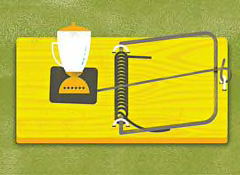"); return false; } }); } }); }); function printExec(generatePage){ var s= s_gi(s_account), overrides = {}, name = 'print'; overrides.linkTrackVars = 'events,prop48,eVar48,eVar5'; overrides.linkTrackEvents = 'event3'; overrides.eVar5 = name; overrides.events = 'event3'; overrides.prop48 = s.eVar48 = s.pageName + ' | ' + name; s.tl(this, 'o', name, overrides, function() { if (generatePage) { window.open('/content/cro/en/consumer-reports-magazine/z2013/May/warrantyProtectionn.print.html','win2','status=no,toolbar=no,scrollbars=yes,titlebar=no,menubar=no,resizable=yes,width=640,height=480,directories=no,location=no'); } else { window.print(); } }); return false; } function emailExec(){ var s = s_gi(s_account), overrides = {}, name = 'email'; overrides.linkTrackVars = 'events,prop48,eVar48,eVar5'; overrides.linkTrackEvents = 'event3'; overrides.eVar5 = name; overrides.events = 'event3'; overrides.prop48 = s.eVar48 = s.pageName + ' | ' + name; s.tl(this, 'o', name, overrides); jQuery('.emailPopover').dialog('open'); return false; }
You have more rights than you might think
Consumer Reports magazine: May 2013
Fourteen months after the manufacturer's warranty for Donald Curtis' $1,500 plasma television expired, the TV started going haywire, he says. The controls would freeze, and the volume and channels would change by themselves. Curtis, who lives in Northborough, Mass., persuaded Samsung to replace the TV, but only after spending nine aggravating months and almost $800 trying to repair it.
What Curtis didn't know is that he had additional warranty rights that might have helped him get satisfaction free. Here's what you need to know about warranties.
The written warranty is not the whole story

Your rights go beyond what you read in a warranty booklet (also called an "express warranty" or guarantee). Any written or spoken claim made by a manufacturer or retailer—in a print or TV ad, on a package, or anywhere else—may be considered an express warranty as well. For instance, TV and Web ads for a product called the Olde Brooklyn Lantern say that its LED bulb will last 100,000 hours. So even though OldeBrooklynLantern.com guarantees satisfaction for only 30 days, if those LEDs stop working before 100,000 hours (more than 4,100 days), you might have the right to a repair, replacement, or refund.
What you should do. Keep copies of all performance promises, no matter where you find them. Try to get spoken claims in writing. Send an e-mail confirming the promise and keep the response.
You have a right to see the written warranty before you buy
Under a federal rule, retailers must let you read any written warranty for products costing more than $15. Based on what we've seen, some retailers or their sales staff either don't know the law or ignore it.
When Melodie Eisenberg of Decatur, Ga., went to Best Buy for a computer modem and asked to see the warranty, "the salesperson acted like I was some nut job asking for something weird" and refused to open the box, she recalls. Eisenberg says the salesperson had first tried to sell her a service contract, presumably to supplement the unknown benefits of the warranty. When she complained to Best Buy headquarters, she was told that the employee was not allowed to open the package.
Best Buy provided us with a copy of its operating procedures, which say that stores must provide warranty information for products priced higher than $14.99. BestBuy.com provides an address and phone number that customers can use to obtain copies of manufacturer warranties. Amazon.com tells shoppers to contact the manufacturer for warranty information, although it might be available on some of its product pages.
What you should do. If a merchant won't show you the warranty even after you explain your rights, consider filing a complaint with the Federal Trade Commission.
Laws give you more rights
If you discover that something you bought is defective, contact the retailer and manufacturer to ask for a repair, replacement, or refund.
Along with companies' express warranties, you also have "implied warranties" under state law. The Uniform Commercial Code, a set of laws adopted in much the same form by all states and the District of Columbia, provides an automatic "implied warranty of merchantability." That unwritten protection guarantees that consumer products are free of substantial defects and will function properly for a reasonable period of time. What's "reasonable" depends on the type of product and the amount you paid. States typically limit implied warranties to four years. They apply to products you buy from retailers that normally sell such items.
But here's where it gets complicated: Most states allow companies to negate, or "disclaim," the implied warranty by conspicuously disclosing that a product is being sold "as is" or "with all faults," or by simply stating there's no implied warranty. And manufacturer warranties typically do just that. "In my opinion, every warranty you see is taking away rights you would otherwise have," says Richard Alderman, director of the University of Houston's consumer law center.
Eleven states (Connecticut, Kansas, Maine, Maryland, Massachusetts, Minnesota, Mississippi, New Hampshire, Vermont, Washington, and West Virginia) and the District of Columbia prohibit consumer products from being sold "as is." In some of those states, stores can still sell items without implied warranties if they follow strict requirements, such as telling the customer exactly what's wrong with the product or by selling the item as a factory second.
States take these laws seriously. Last year, Maine reached a settlement with a new-car dealer that it accused of disclaiming implied warranties by telling consumers that only the manufacturer, not the dealership, was responsible for serious vehicle defects. The implied warranty also applies to most used goods sold by merchants, including used cars in some states.
And last, the federal Magnuson-Moss Warranty Act prohibits companies from disclaiming implied warranties during any period that its written warranty or any service contract is in effect.
What you should do. If you discover that something you bought is defective—even after the written warranty has expired—contact the retailer and manufacturer to ask for a repair, replacement, or refund. It doesn't matter what the retailer's return policy is or that the manufacturer put a notice on the box telling you not to return the item to the store.
Don't expect a salesperson or customer service representative to know about these extra rights. To get satisfaction, you might have to go up the corporate ladder or post your complaint online, say, on the company's Facebook page. If that fails, try complaining to the Better Business Bureau and to your state attorney general or consumer protection office. Send a demand letter threatening to take the company to small-claims court. If it's an expensive product, contact a consumer attorney. (You can find one at naca.net.)
You have other protections, too

You may be able to satisfy a product complaint through other channels, including:
Credit-card warranties. Many credit and some debit cards extend the manufacturer's written warranty, usually for up to one year, on most products you buy using the card. Check the documentation that came with your card or go to the issuer's website.
Credit-card chargebacks. If you have a problem with the quality of a product or service you paid for with your credit card, federal law gives you up to a year to seek a chargeback. The disputed amount must be more than $50, the merchant must be in your home state or within 100 miles of your mailing address, and you must have first tried to resolve the problem with the merchant. And you can't claim more than the outstanding balance on your credit card, so you're out of luck if the problem crops up after you've paid your bill in full.
Goodwill programs. Companies sometimes quietly offer free or discounted out-of-warranty repairs or product replacement for customers who complain.
Lemon laws. Many states have lemon laws for new and used cars, pets, and, in New York, even wheelchairs. If a problem can't be fixed after a certain number of attempts or a given period, you're entitled to at least part of your money back. Some lemon laws provide arbitration panels to hear complaints.
Recalls. If you suspect that a product is unsafe or if it is recalled, contact the manufacturer or retailer immediately. You can find news of recalls at SaferProducts.gov.
You'll find implied-warranty disclaimers on many retail websites, typically in the legalese on the terms-of-sale pages, though the law requires that disclaimers be prominently disclosed. The disclaimers mean that if you discover that a product is defective, the site simply might tell you to complain to the manufacturer or that you're out of luck.
The good news is that you'll rarely find merchandise being sold "as is" in walk-in stores, even at retailers such as Target and Walmart, whose websites disclaim implied warranties in the fine print.
What you should do. Buy from a walk-in store, and avoid products sold "as is" or with similar language. Buying in a state that prohibits warranty disclaimers means you're probably protected no matter how the item was sold. If you live in one of those states but buy from a website based in a less-consumer-friendly state, you're still probably protected, says Edgar Dworsky, a former Massachusetts assistant attorney general who runs ConsumerWorld.org, a resource guide.
You do not need the service contract
Extended warranties or service contracts are a bad deal. Most products don't break during the time covered by them—typically years two and three of ownership. Moreover, the typical cost of repair is on average not much more than the cost of the contract. The consumer warranty protections described here make service contracts even less worthwhile.
What you should do. Self-insure by placing the money you would otherwise spend on service contracts into a savings account. Use that when you have to repair or replace a product at your own expense.
Warranties must be reasonable

A warranty that makes it impractical, if not impossible, to get satisfaction probably can't be enforced, says Amy Schmitz, a professor at the University of Colorado School of Law. For example, to obtain warranty service, a manufacturer can't make you pay shipping charges that exceed a product's cost, something Schmitz said a company tried to do with a defective blender she bought. She negotiated for a new blender by sending a photo of the broken one with the cord cut off to show that she wasn't trying to commit fraud.
Talk the talk: How to sound like a lawyer
Or at least here's how to understand what the jargon used in warranties really means:
• Express warranty is a written or spoken promise from a manufacturer or retailer. Federal law requires that written warranties that come with products costing more than $10 be labeled "full" or "limited." Full warranties are transferable, don't limit implied warranties or require the consumer to pay any fees to obtain service (such as shipping charges), and give customers the option of a replacement or full refund after a reasonable number of failed repair attempts. Limited warranties don't have to meet all those requirements.
• Implied warranty is an unwritten, automatic protection granted by state law.
• Lifetime warranty doesn't necessarily mean your lifetime, but can refer to how long a company carries a product or how long it's available from the manufacturer. Check the fine print and whether your state law defines lifetime warranty.
• Consequential or incidental damages are losses caused by a defective product. One example would be the cost of food that was ruined because of a defective refrigerator. You might be able to claim these, especially in states with strong consumer protection laws.
• Tie-in sales provisions require customers to buy products or services from a particular company to maintain warranty coverage. They're generally prohibited.
Editor's Note:
A version of this article appeared in the May 2013 issue of Consumer Reports magazine with the headline "Warranty Protection."

